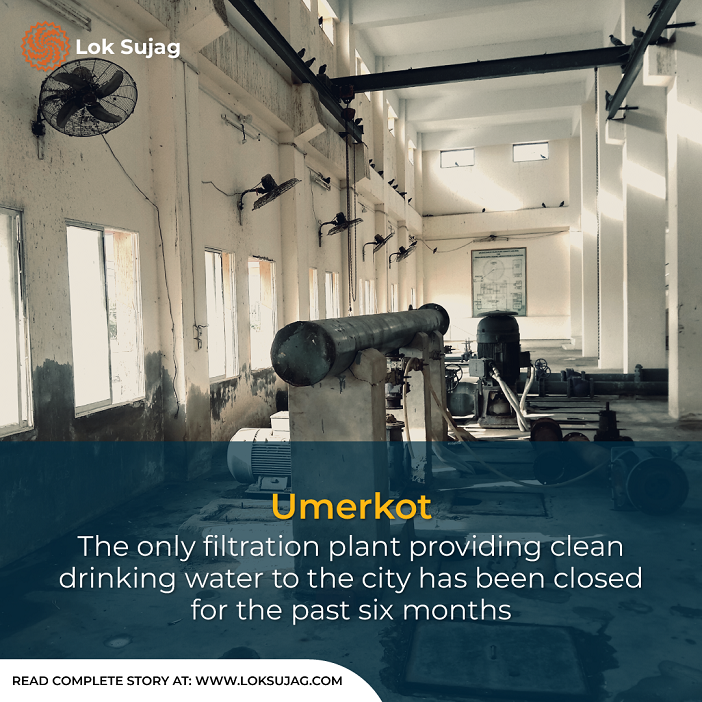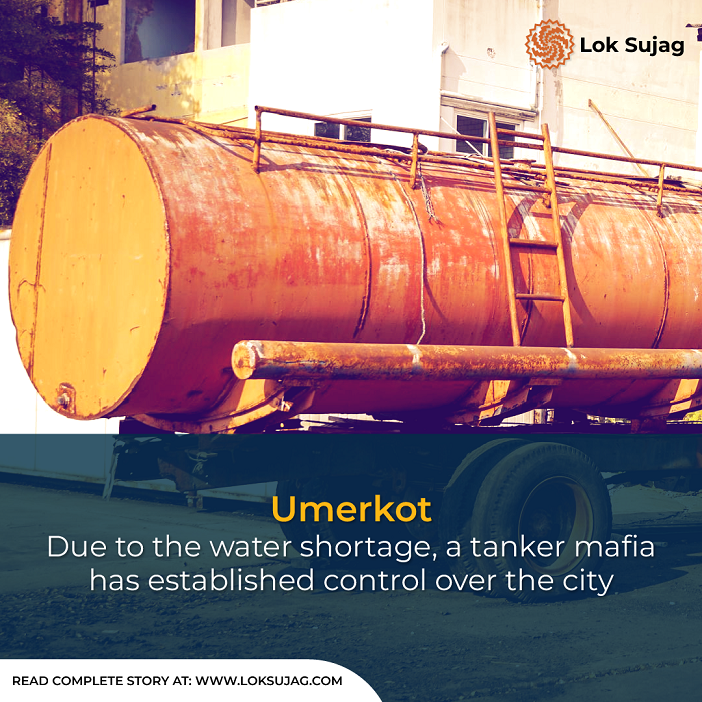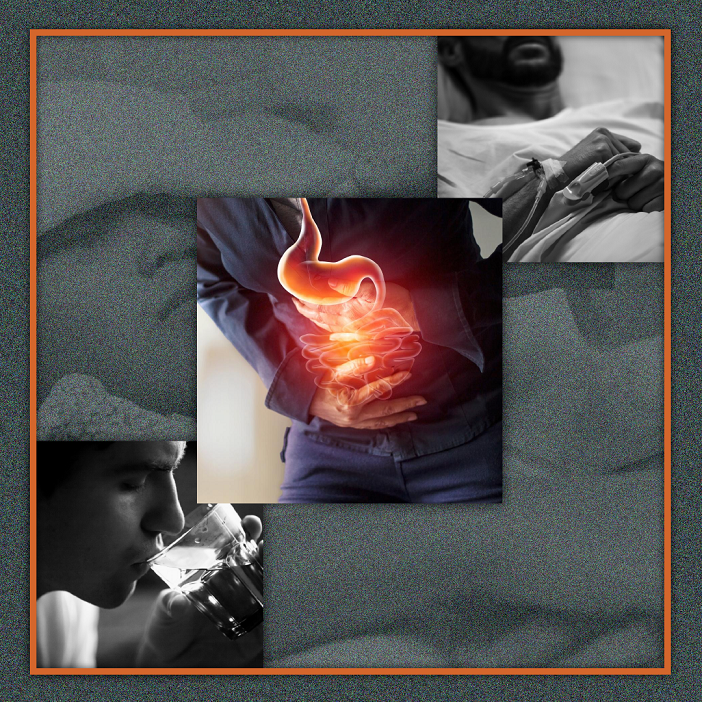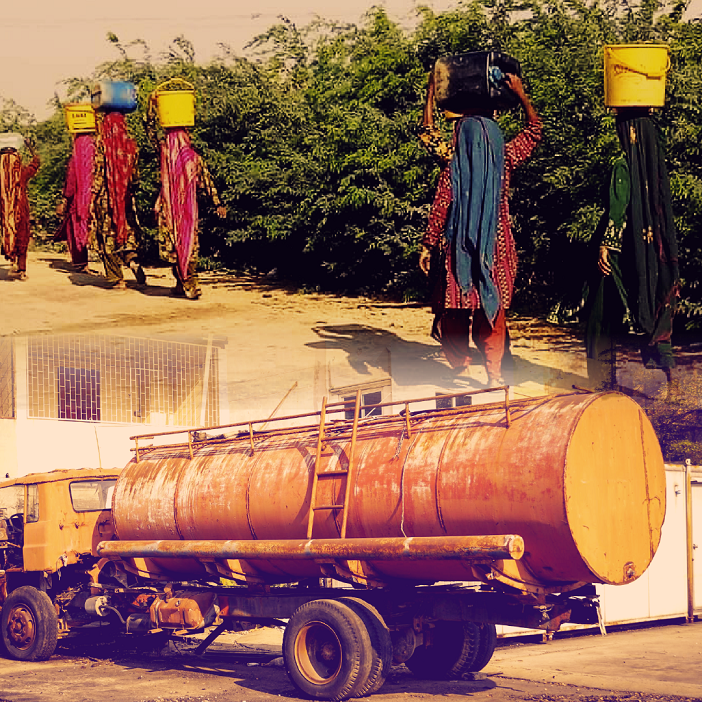Deewan Malhi Umerkot is a town in the Chandi Ram Nagar area. Despite living just half a kilometre from the government water filtration plant, the residents have to buy clean water from the market.
He says that he has a water supply connection installed in his home, and every month, he diligently pays a municipal committee bill of one hundred rupees. However, water comes only once or twice a month, which is not suitable for drinking. It can only be used for washing utensils and clothes.
In the municipal committee of Umerkot, the district headquarters, more than one lakh 44,000 people live. However, the only filtration plant providing clean water to the city has been closed for six months. Occasionally, water from ponds is diverted to the city for the residents.
Not only Deewan Malhi but the entire city is facing a water shortage. Areas like Chor Road, Kanri Road, Chachhro Road, and colonies such as Rahmo Colony, Minghwar Colony, Jeewan Nagar, Hari Camp, and 20 other similar areas are deprived of water facilities.
According to the municipal committee records of Umerkot, at present, 22 employees, including supervisors, are working at the filtration plant.

Burhan Kanbhar is the Pakistan Peoples Party (PPP) district secretary of information. He says that the municipal committee and the surrounding areas have a population of nearly two hundred thousand, while the filtration plant is relatively small. Due to water scarcity, a tanker mafia has established control over the city.
According to the figures from the municipal committee, there are seven thousand water supply connections in Umerkot and each consumer is charged a monthly fee of 100 rupees.
Jhaman Kumar Malhi is a resident of the Shewani neighbourhood in Umerkot. He says there are more than 50 private water tankers in the city, providing water to various colonies and villages for prices ranging from five to six thousand rupees per tanker. Water is transported to the city on chingchi rickshaws and donkey carts.
However, even the water brought from the canal is not clean. Drinking it has led to an increase in stomach ailments and gastro-related issues in Umerkot and the surrounding areas.
According to the statistics obtained from the three wards of Umerkot Civil Hospital (Men's, Women's, and Children's Wards) for the initial 20 days of November 2023, 573 patients with gastro and diarrhoea were admitted. This included 70 men, 93 women, and 410 children.

According to the records, in the same 20 days of the previous year, 181 patients, including women and children with gastro and diarrhoea, were admitted to Umerkot Civil Hospital.
Doctor Allah Dad Rathore is a former District Health Officer in Umerkot. He says that the primary cause of gastrointestinal diseases in Umerkot city and rural areas is contaminated canal water that becomes polluted as it reaches its destination.
He says that 50 per cent of gastrointestinal and stomach diseases are attributed to contaminated water, while the remaining 50 per cent is due to various viruses. People are compelled to rely on bitter and undrinkable groundwater in the city.
Dr Vishandas Soothar is an Assistant Professor in the Department of Soil Sciences at Sindh Agriculture University Tando Jam and is appointed at the sub-campus Umerkot. He has prepared analytical reports on canals and groundwater in this regard.
He says samples were obtained from 25 locations for canal water (city water supply) and 85 samples from various locations for groundwater. According to the report, the overall quality of both canal and groundwater in Umerkot is not satisfactory.
He says that at most places, the Total Dissolved Solids (TDS) level in the canal water is less than 50 milligrams per litre, which is not suitable for drinking.

He says that the pH level of groundwater here is 8, and in half of the samples, the Total Dissolved Solids (TDS) are above two thousand, with an elevated amount of arsenic present in it as well.
"This water is not even suitable for agricultural use."
The municipal committee is now managing Umerkot's water filtration plant. Regarding the water supply, Incharge of water supply, Ashok Kumar Malhi, says that water is drawn from Kot Wah and Thar Wah through pipelines, stored in reservoirs, and then supplied to the city.
He confirms that filtered water is not reaching the residents due to the plant being closed for the past six months. However, water supplied from the Indus River is sweet and relatively better.
Syed Haider Shah is a senior sub-engineer in the Public Health Department. He mentions that the filtration plant project in Umerkot started in 2006 and was completed in 2014. The project incurred a cost of 65 crore rupees, and its objective was to provide 34 lakh gallons of filtered water daily to the population of one hundred thousand in Umerkot.
He claims that the filtration plant was supposed to be operational until 2020, but even three years later, it still functions.
Also Read

In Mianwali, residents forced to drink contaminated water as authorities await funds to fix filtration plants
However, the newly elected Chairman of the municipal committee from the PPP, Khalid Siraj Soomro, holds the Public Health Department officials responsible for the malfunctioning of this plant.
He says that after the department neglected the maintenance of the filtration plant, the responsibility has now been transferred to the municipal committee.
"An important pump at the plant has malfunctioned due to the department's negligence. Its chlorination machine, backwash machine, 50 horsepower motor, and a KV 400 generator have also been damaged. The pump has been transferred under the committee's responsibility."
Khalid Saraj says that the municipal committee will now provide all the machinery for the filtration plant, and arrangements are being made for this. New water supply connections will be installed in every ward of the urban population by June, and the water supply will be initiated.
The public health sub-engineer says that the PPP government approved a project some time ago to increase the capacity for clean water in Umerkot.
Under the new scheme, two large reservoirs are being constructed near the regulator of the canal to improve the water capacity. The project requires 29 acres of land. This matter was in the final stages between the Public Health and Revenue departments, but then the caretaker government came to power, and the commencement of work was delayed.
He says that the initial estimate for this project was one billion, seven crore and 80 lakh rupees. The government had approved 20 crore rupees in the first phase. According to estimates, the completion of this project will provide clean water to the population of two lakh, 42 thousand in the city and surrounding areas.
Published on 10 Jan 2024




















